Georgian Black Sea coast after Kakhovka - what fate awaits the sea, tourism and economy
Is the Black Sea safe?
The Black Sea water off the coast of Georgia is not polluted, the government says. But this does not reassure the population – the tourist season in Achar is on the verge of collapse.

After a two-year failure during the pandemic, the tourist season in Georgia is once again on the brink of collapse; especially on the Black Sea coast, where tourism is the main source of income for residents.
The tourist season was under threat after the explosion of the Kakhovka dam in Ukraine.
How safe is it to vacation on the Black Sea? Is there a risk of spreading diseases through water? Can water carry a bomb? These are the questions most often asked on social media.
On June 6, Russian occupying forces blew up the Kakhovka dam in Ukraine. Dozens of people died, tens of thousands were left without shelter and clean water. A strong flow of water from the reservoir flooded and washed away about 80 settlements, cemeteries, cattle burial grounds, gas stations and chemical plants. In Ukraine, it is assumed that the water flows carried into the sea more than 20 thousand dead animals, 150 tons of oil, fuel, pesticides and other toxic substances. Millions of fish have died.
Is the Black Sea safe?
The Kakhovka dam is part of the Kakhovka hydroelectric power station complex. The dam had a height of 30 m and a length of 3.2 km. Its construction began under Stalin and was completed under Nikita Khrushchev. It was in operation since 1953. The dam was built on the left bank of the Dnieper, whose territory is occupied by Russia. The right bank of the Dnieper, including the city of Kherson, is under the control of the Ukrainian authorities.
The Black Sea has become a source of serious diseases. Cholera, botulism, anthrax – this is a small list of diseases that can be spread due to contaminated water.
Ukraine has banned swimming and fishing in the Black Sea. The explosion of the dam endangered the coast and other countries of the Black Sea basin, including Georgia.
A lot of unverified information about water pollution is being circulated in the Georgian segment of social networks – they write that the Black Sea will be dangerous for the next four to five years; photographs of dead animals allegedly washed up on a beach in Batumi are being circulated; videos showing oil stains on the water and even the corpse of a man in military uniform, etc.
“Eight places on a dragon” – what is happening in Batumi
The end of July is the height of the sea season in Batumi. As a rule, at such a time there are no free sun loungers on the beaches of the largest seaside city of Georgia, the boulevard along the embankment is crowded with tourists, people stand in lines at cafes and restaurants. But this year it’s not like that.
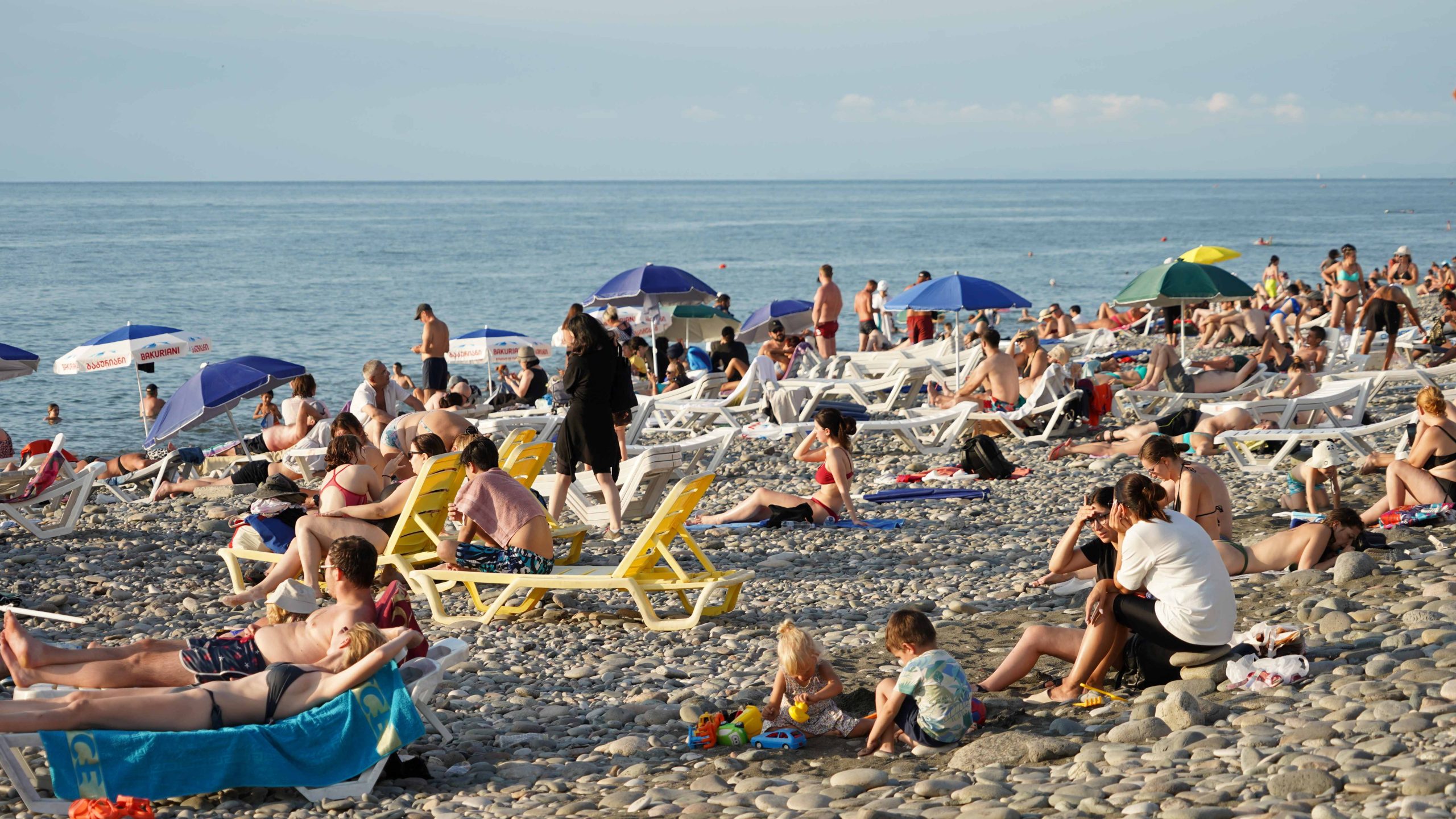
-This is white corn, this is yellow. What do you want? – in broken Russian, a young guy chooses hot corn for a family lying on sun loungers.
Is the Black Sea safe?
-“Raspberries, local, cold raspberries,” another salesman comes up behind him.
In Batumi, Russian is mostly heard on the beach and on the boulevard. Sometimes it seems that there are much more Russian speakers here than Georgians. Some of them are the so-called. relocators, those who moved to live in Georgia after the war, some are tourists.
Carriers of corn and soft drinks also adapted to the new reality and learned Russian phrases. However, the Russians also compete with them – many have started small businesses on the coast, including delivering corn and drinks and offering various services:
-Eight places on the dragon! Who wants to ride? Only eight places, a lot of extreme! Girls without a swimsuit free, men without a swimsuit doubly! – a muscular young man, fluent in Russian, walks along the beach with a mouthpiece.
“Everyone here is Russian now, especially in the part where there are big hotels,” a guy who rents sunbeds tells me, completely sunburnt.
This is a favorite topic of discussion among local taxi drivers:
“Some Russians already know Batumi better than me. They already have everything of their own here and they work only with each other – they rent apartments, organize excursions, go to each other’s cafes and bars. The only thing is that they have not yet appeared as taxi drivers, but soon they will, ”says a young taxi driver.
Is the Black Sea safe?
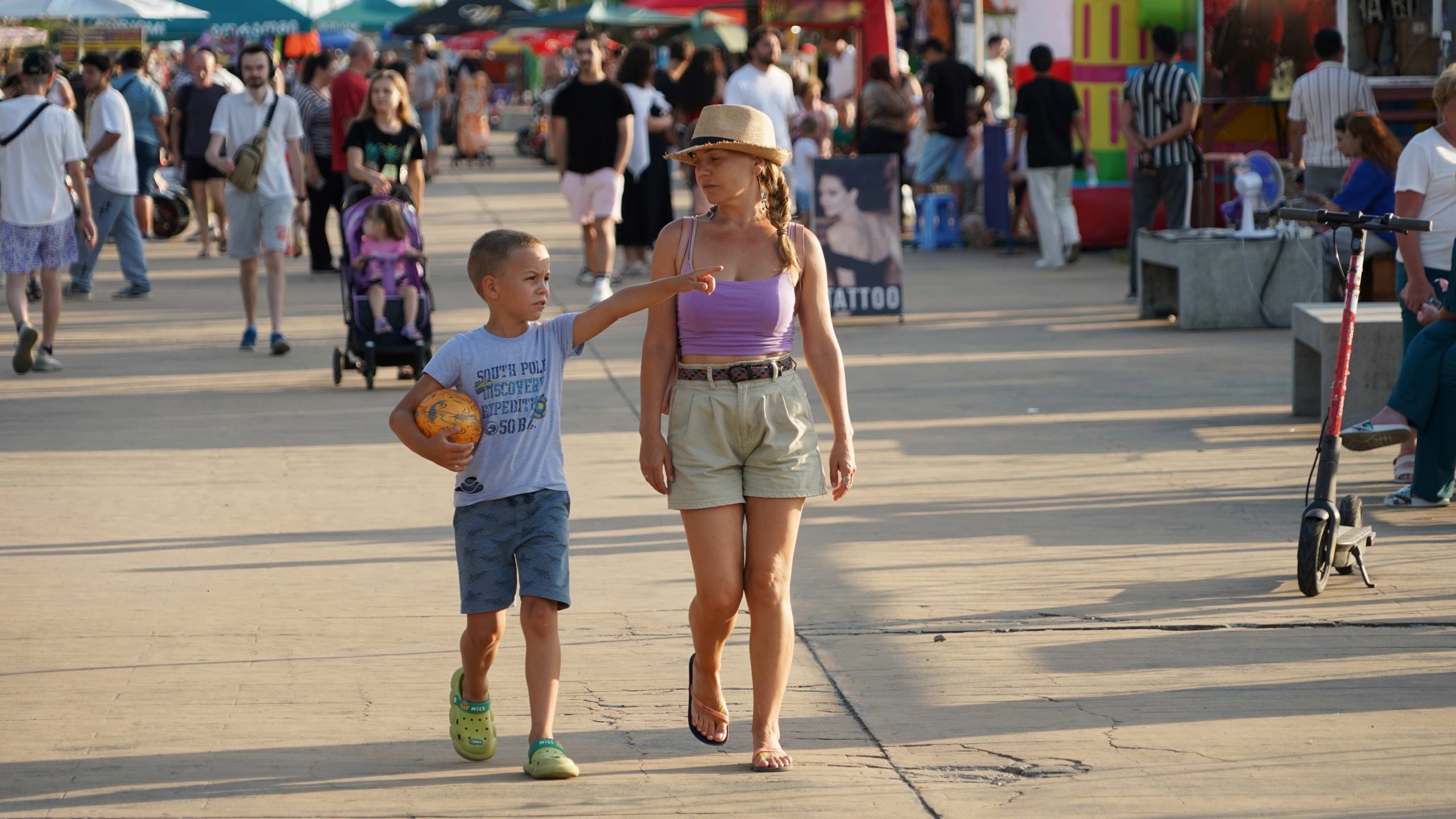
The fact that there are few vacationers in Batumi this year is recognized by everyone employed in the hospitality industry, and many associate this with the explosion of a hydroelectric power station in Ukraine.
We asked tourists what they know about water safety. Since swimming is not banned, then everything is fine, they say.
Marina Tadeeva arrived in Batumi from St. Petersburg. She says that she has not heard anything about the Kakhovka dam.
“I do not know anything. I can say that I really like Batumi, the sea is also unusual. I haven’t heard of the dam.”
“I don’t know anything about water safety, but as far as cleanliness is concerned, the sea is clean,” says David, a Russian citizen who moved to Tbilisi after the war and is now vacationing with a friend in Batumi.

Is the Black Sea safe?
“We arrived from Kazakhstan on July 15 with the whole family. The water is beautiful, everyone swims …. We believe in Allah,” says Talgat Sisemevich, who came to Georgia from Kazakhstan.
“I turn a blind eye to this information. I think that the explosion of the Kakhovskaya HPP will have long-term consequences, but now the water is not polluted, I read about it,” says Rinat. He is also from Kazakhstan.
“Honestly, I was very afraid to go. Many of my friends decided to skip this season. But I took the risk anyway. If it had been dangerous, the authorities would have said. You can’t hide something like that,” says Mary Orkodashvili, a middle-aged woman who came on vacation with her sister.
“We were here for about six days and we didn’t have any problems. If I did not believe that the sea is clean, I would not take children. Traditionally, when we come to the seaside, children always catch an enterovirus, but this year they even managed without it,” says Magi Sulava, who is vacationing in Batumi with her three small children. Maggie says that if sea water were dangerous, the government wouldn’t dare to hide it.
Did the hydroelectric explosion affect the tourist season?
Irakli Tavartkiladze, director of the travel agency “Achara Tour” and one of the owners of the upscale restaurant “Akropol”, has been a major player in the tourism business for many years and knows the market well.
He says that now Batumi is most often visited by guests from Russia, Belarus, Kazakhstan, Israel and Arab countries.
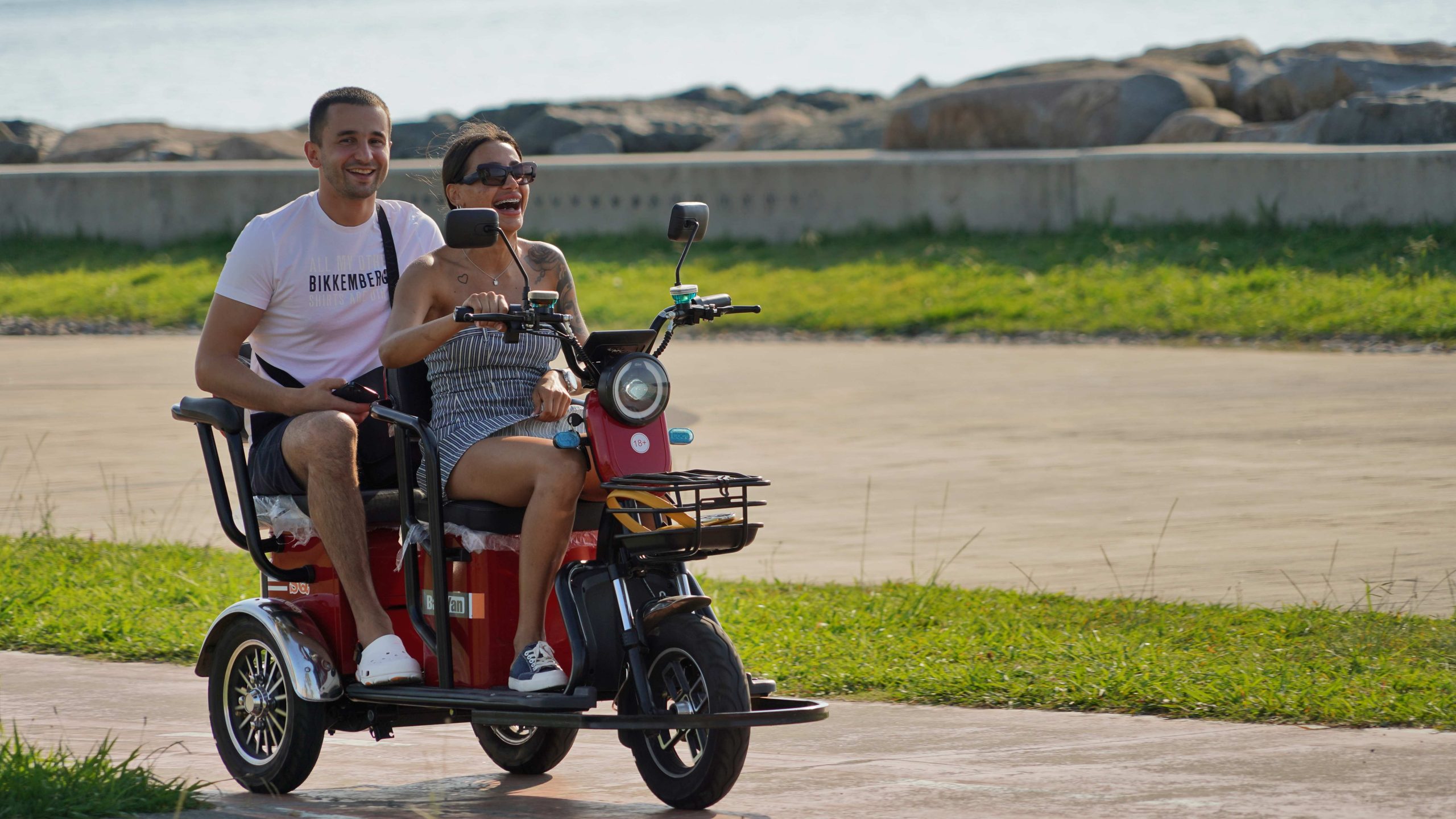
Is the Black Sea safe?
And he notes that, compared to last year, there are fewer tourists in Batumi this year:
“Panic has already played its part. Whether we like it or not, whether we convince our population or not, this precedent has already been. We have seen some pretty bad footage of marine pollution in Odessa and Ukraine. To this is added fake information that it is dangerous to relax on the Black Sea. Therefore, it is not surprising that the population is afraid.”
According to him, about ten percent of the armor in Batumi was canceled after the consequences of the explosion at the Kakhovskaya hydroelectric power station. Tavartkiladze says that this is not a very big loss for his business, but small tourism will have a hard time.
Chao Hotel is one of the oldest in Batumi. The four-story building, opened in 2008, has 23 rooms for about 60 people. Hotel manager Guga Lomashvili says 20 percent of bookings have been canceled this year:
“We expected a large load, but the expectations were not met. There are very few people not only here, but in general in Batumi, the beach is empty.”
Particularly affected are those locals who make a living by renting out apartments during the season. This year, they faced a double obstacle: on the one hand, the panic around the hydroelectric power station, on the other, competition with the Russians. The fact is that the Russians who moved to Georgia after the war have already become accustomed to the local real estate market, they themselves rent apartments to Russian-speaking tourists, bypassing the locals.
“From eight years of experience, I can say that this year is the worst season, because apartment prices are very low and there are not so many vacationers,” says local resident Giorgi Shalikashvili, who has been renting an apartment by the sea for many years.
What are vacationers afraid of, what myths are spreading about the Black Sea?
Over the past few days, people have been sharing on social media a video showing the corpse of a man in military uniform lying on the beach.
The caption under the video says that this is the body of a dead Russian soldier, who was recently washed away by the sea on the beach in Achar.
As it turned out, this footage was not filmed in Georgia, but many of those who refuse to go to sea this year still cite this fake as an argument.
“I don’t trust this government and the information they are spreading. The main thing for them is to save the tourist season, tourism is a sacred cow, people’s health is not important for them,” wrote one person who shared this video.

From time to time, social networks also talk about dead animals washed ashore. They talk about cases of mass death of dolphins in the countries of the Black Sea basin.
“You can’t tell me a single year when the sea didn’t throw out a dead dolphin. There are various reasons for this, they often get caught in the net, they also have their own diseases,” says Batumi ecologist Kakha Guchmanidze.
He believes that these myths and disinformation are the echoes of Russian propaganda. According to him, the currents in the Black Sea move in such a way that the corpses from Ukraine cannot get to Georgia at this time, especially in an incorruptible state.
“People were circulating that dead cattle had been thrown into the sea in Sukhumi. According to geographical logic, they were definitely not brought from Ukraine. Perhaps they were carried away by some kind of river, or it was staged shots.
Is sea water really dangerous?
The fact that propaganda works to panic the population does not mean that the situation on the coast of Georgia does not need monitoring and vigilance, environmentalists say.
Sea water in Georgia is tested by the National Environmental Agency of the Ministry of Environmental Protection and the Environmental Protection Department of Achara.
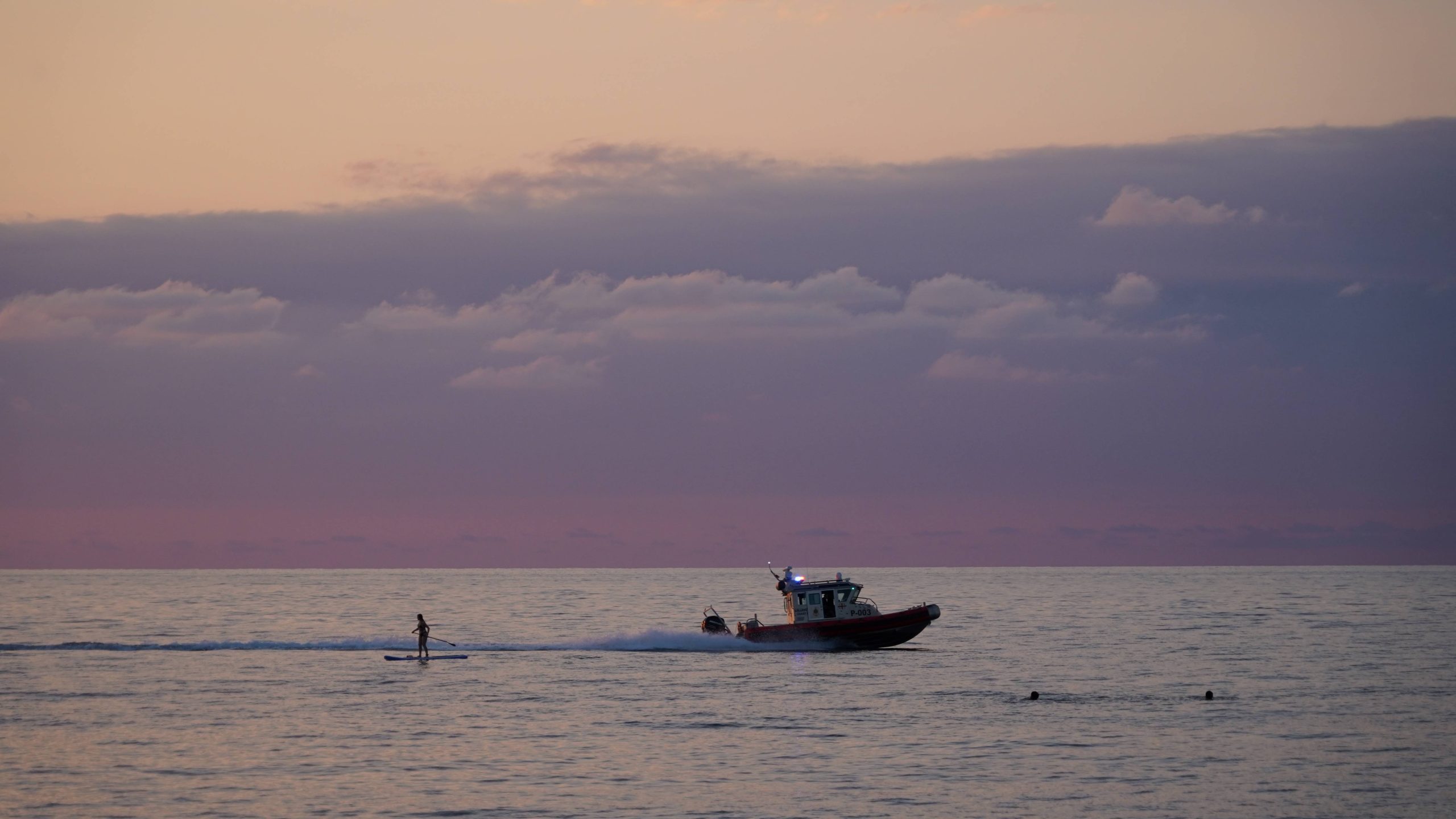
Physical-chemical and bacteriological analysis of water is carried out. The level of radiation, the amount of organic substances and toxic minerals are checked, as well as how many pathogenic viruses and parasites are in the water, that is, what is the quality of the bathing water.
Water samples are taken every ten days at 12 stations, from different depths. The results of the study are openly published on the website of the Ministry.
The last such information was published on July 29. It contains the results of the inspection of 16 and 20 July.
The agency writes that the values of 59 parameters determined in the Black Sea water samples are within the normal range.
The Ministry of Environmental Protection told JAMnews that Georgia’s Black Sea water is safe:
“As a result of the Kakhovka incident, 18 cubic meters of fresh water spilled into the sea, which, obviously, immediately caused a softening of the sea water surrounding Ukraine, however, based on the scale of the Black Sea (555,000 cubic meters) and the features of the currents that characterize the Black Sea, this is not will not affect the Georgian coast.”
However, apart from official studies, no alternative Black Sea water samples are carried out in Georgia. According to environmentalists, this is an expensive process, it takes millions, and the non-governmental sector does not have that kind of money.
Therefore, the assessment of environmentalists, whether the Black Sea is safe or not, is based only on studies carried out by government agencies. Ecologists also appeal to the trajectory of water flows in the Black Sea and the ability of the sea to self-filter.
“Surface currents go northwest, pass the territory adjacent to Romania, Bulgaria, Varma, then the Bosphorus, then the Anatolian plain, begin their journey to the south, then all this is divided into two currents near Georgia. Can you imagine how many hundreds of kilometers this stream has to travel for all this – in this case, pollutants – to get into Georgia, ” Kakha Guchmanidze, an ecologist from Batumi, says.
Another environmentalist, Nino Chchobadze, chairman of the green movement Friends of the Earth Georgia, says the flood of polluted water will reach Georgia in almost a year:
“The flow of water from Odessa will reach us somewhere in 8-11 months. It is difficult to predict what exactly this water will bring to Georgia. Water has the ability to filter itself, it must be assumed that it itself will filter dangerous substances.”
According to her, it should be taken into account that a large number of dangerous substances have already fallen on the banks of the Dnieper. And what is left in the water, most likely, will slowly settle along the way:
“Now we can only wait and watch the water. At the same time, we must have close ties with the countries of the Black Sea basin.”
Ecologists also rule out the presence of radioactive pollutants in the sea and another fear – fish poisoning.
“Depending on the speed and location of the game fish, the risk of contaminants entering our game species in such quantities that they end up in our food chain and cause any harm is also very minimal,” Kakha Guchmanidze says.
What about mines?
The only danger they cannot eliminate, and which the sea cannot filter out, are mines. Since the beginning of the war in Ukraine, one mine exploded in Batumi in February of this year.
Stephane Dujarric, a spokesman for the UN Secretary-General, said that “due to the flooding and the rapid movement of water” the mines could have landed in areas “previously considered safe”.
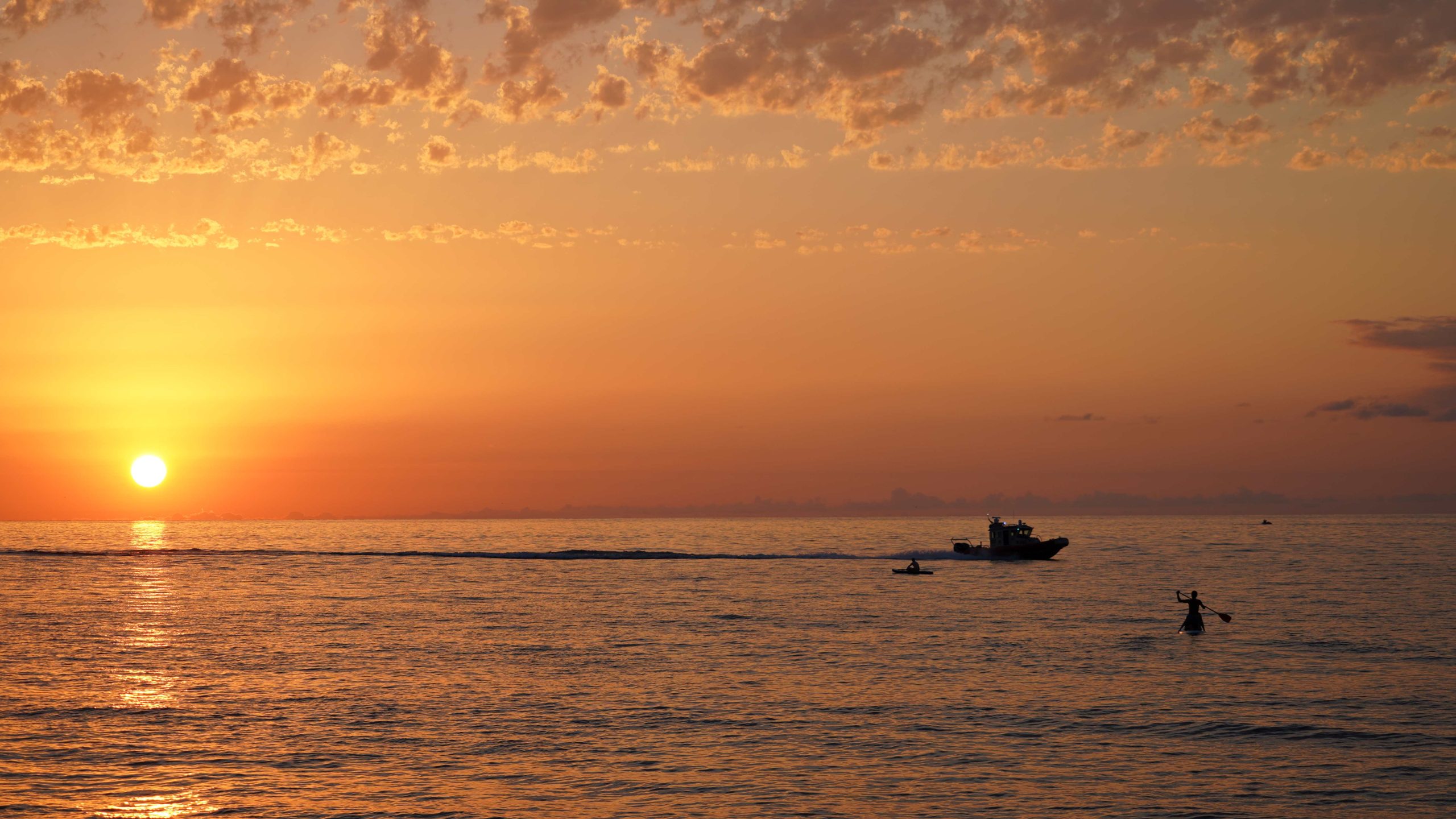
Retired Major General Vakhtang Kapanadze, former Chief of the General Staff, told JAMnews that there is a risk of mines blowing up, but this risk is small: “However, we must be careful.”
According to him, heavy anti-tank mines and shells would have already settled off the coast of Odessa. But there are anti-personnel mines weighing 100-150 grams that can be carried over a long distance:
“We are talking about Soviet-made PFM anti-personnel mines, which are called butterfly mines because of their shape. They’re made of plastic, waterproof, and light enough to travel long distances.”
Can the season be saved?
There is still more than a month before the end of the sea season. The peak in Batumi lasts until the end of August. Experts believe that the season can still be saved if government agencies work properly.

Kakha Guchmanidze believes that government agencies have so far reacted belatedly:
“If there were the right relations and interaction with fellow citizens, as well as the right PR on a global scale, the season would not have failed. When the public interest is so high, it is necessary to check the water not once every 10 days, but every day and put on the site updated information translated into several languages.”
Irakli Tavartkiladze, who has been one of the largest tour operators in the market for a decade, also says the government should work to fill in the lack of information:
“The more informed the population, the more confident it will be, and people will calmly go into the sea and swim. On the air of TV companies and on social networks, facts based on reliable sources should be disseminated, and not fakes, incompetence and panic.”
Is the Black Sea safe?
With the support of “Mediaset”


















